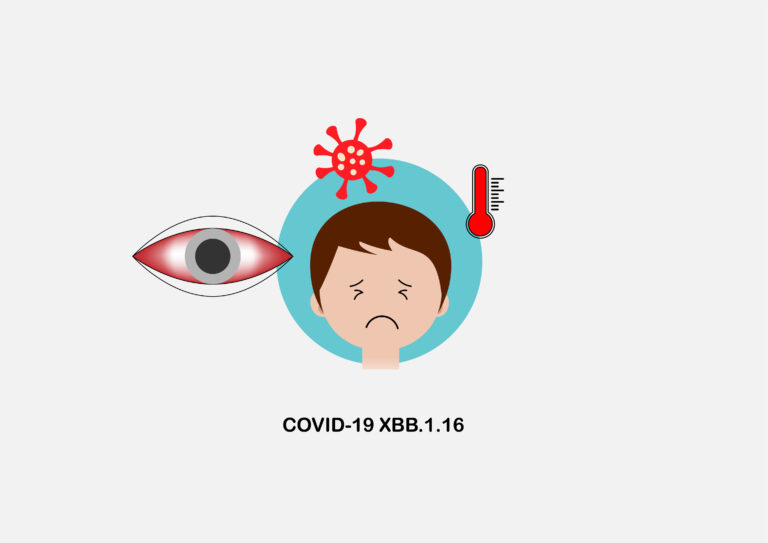A new COVID Omicron subvariant (XBB.1.16, known as “Arcturus”) has been making headlines recently for being highly contagious and causing conjunctivitis (pink eye).
As discussed in a report from a California county health department, people who are infected with Arcturus XBB.1.16 “could be more likely to experience conjunctivitis as a symptom of their Covid infection” – a symptom which had not been seen in previous variants. So any indications of eye infection should be taken seriously and checked out.
The variant also does a higher transmissibility rate than previous strains, but infectious disease experts say this is a normal trajectory and it “should not prompt concerns about a return to early pandemic stages.” It also is not being considered a variant of concern because it does not appear to be more severe than other variants. Additionally, the COVID vaccines appear to protect against the variant.
According to CDC data, XBB.1.16 is still at significantly lower levels than the XBB.1.5 with reports showing as currently infecting 64% of those with a COVID strain, while only 14.3% are infected with XBB.1.16. However, it has increased in recent weeks. CDC’s COVID-19 data tracker provides visualizations, graphs, and maps on one easy-to-use website by which state incidences and variants can be tracked.
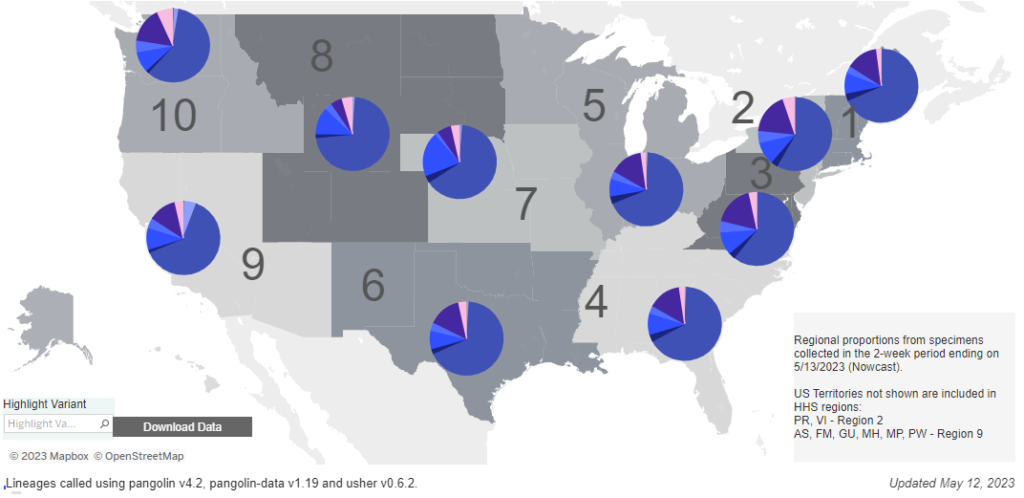
With the increased communicability of Arcturus, and the increase that has been shown, it is important for everyone to, as the report states, “take the same sensible Covid precautions to help avoid infection.” This includes businesses ensuring that you are keeping an eye out for employee symptoms and are re-implementing any protections that become needed.
For assistance with your public health plan, or assessment of needs, give TAG a call. We can help.
COVID Risk Matrix:
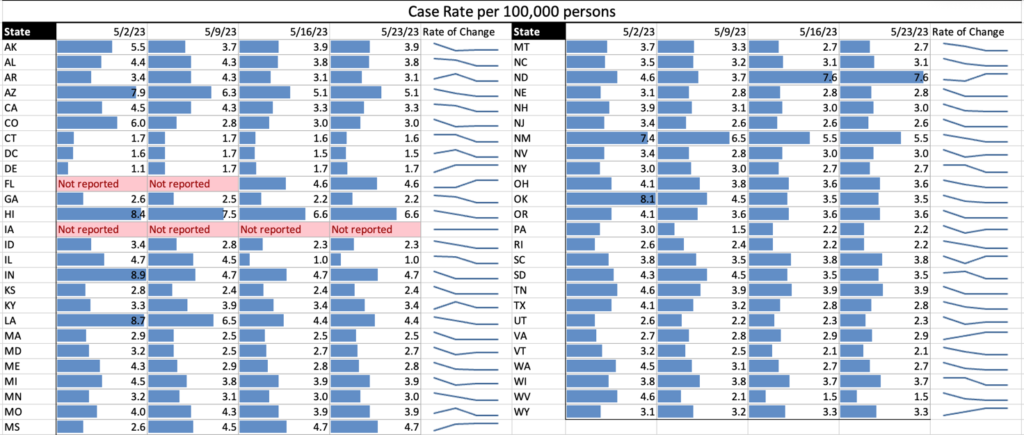
Influenza:
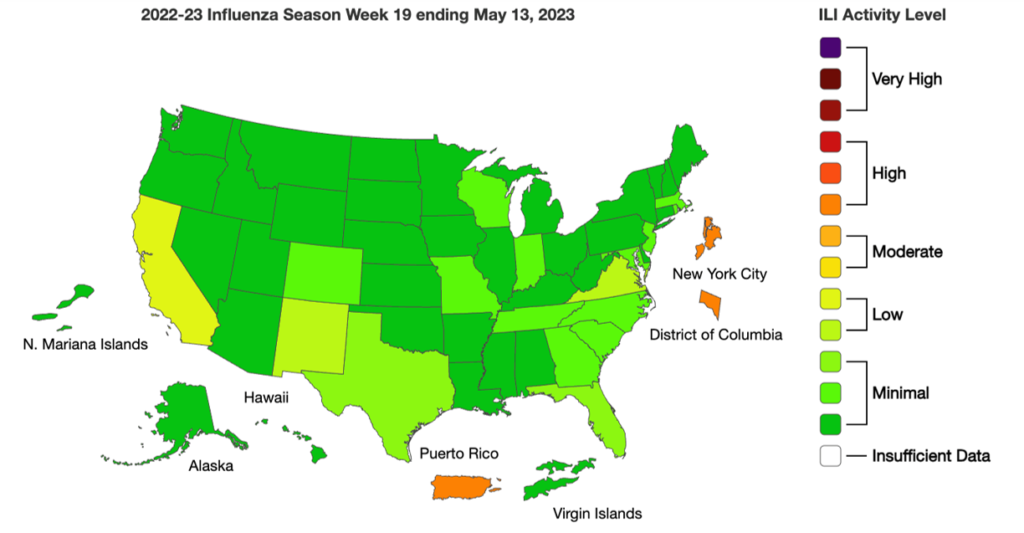
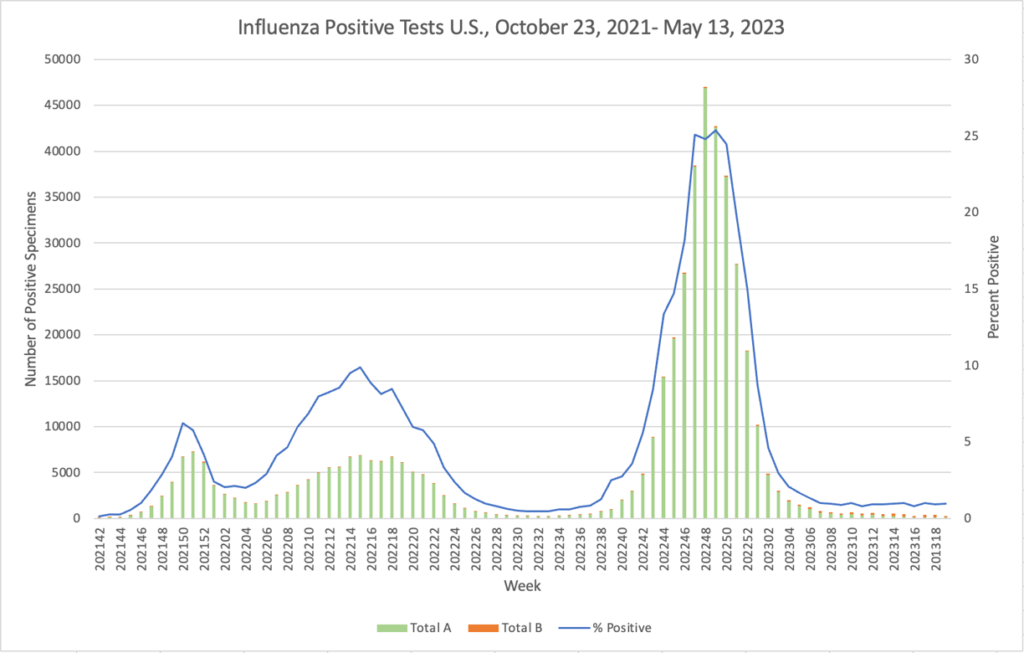
- USDA Announces Atypical Bovine Spongiform Encephalopathy Detection. BSE was found in an approximately five-year-old or older beef cow at a slaughter plant in South Carolina. The animal didn’t enter the slaughter channels and at no time presented a risk to the food supply chain or to human health in the United States.
- Tainted eye drops were recently tied to 81 cases of highly resistant Pseudomonas in 18 states. There have been 4 reported deaths and 14 individuals experiencing vision loss.
- Four countries have reported more polio cases – Afghanistan with wild poliovirus type 1 cases, and three African nations with vaccine-derived polio cases. The case counts for 2023 are as follows: Nigeria 6, The Democratic Republic of the Congo 145, Central African Republic 7.
- WHO advisers recommend switch to monovalent XBB COVID vaccine, containing an XBB.1 descendant lineage such as XBB.1.5. XBB strains currently dominate all other COVID-19 strains.
- SD Biosensor, Inc. has announced a recall of Pilot COVID-19 At-Home Tests, distributed by Roche Diagnostics, due to contamination of the liquid solution that was found to be contaminated with organisms such as Enterococcus, Enterobacter, Klebsiella and Serratia species.
- The UK has reported an increase in myocarditis infections and two deaths in babies who had enterovirus infections, according to the WHO. Enterovirus infections are common in young babies, but the link to myocarditis with severe outcomes in the age group is unusual.

